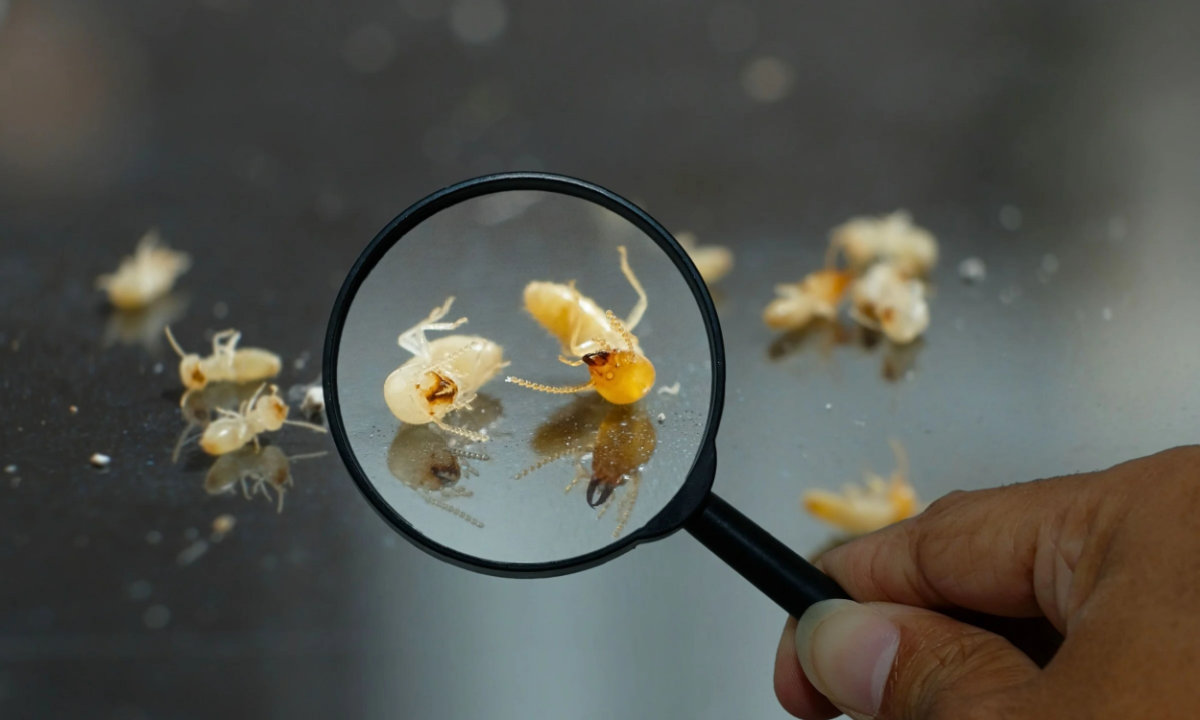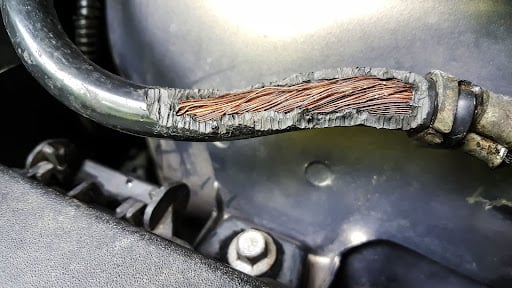Distinguishing between water bugs and cockroaches in New Jersey is quite difficult. Both have long, flat brown bodies and look almost identical.
While often referred to as a roach, waterbugs are aquatic creatures that are part of a completely different genus.
Nevertheless, spotting a water bug or cockroach in your home can be quite jarring and indicate the possibility of an infestation. If you want to eliminate water bugs and cockroaches for good, read this guide.Request a Free, No-Obligation Quote
Request a Free, No-Obligation Quote
What are Water Bugs?
Waterbugs are large, ovoid-shaped bugs that tend to swell in standing water. The true water bug is actually called a Nepomorpha and is part of the “true bug” order known as Hemiptera.
They are usually brown or black in color with long antennae and six legs and are often confused with the Oriental cockroach. However, the Oriental cockroach is native to Africa.
Like pincher bugs, waterbugs are rarely found in homes, but they are quite common across the northeast region, particularly in the tri-state area. Mostly, they feed on other insects, though they’ve been known to bite humans and infest houses from time to time.
For this reason, being able to identify and treat water bugs when they enter your home is crucial.
Identifying Water Bugs
Waterbugs have a flat body shape with two long antennae on their heads. They also have wings but cannot fly due to their size and weight.
Their bodies range from 1/2 inch to 2 inches in length depending on species, making them easy to identify when compared to other bugs like ants or flies.
Water Bugs thrive in dark, damp areas such as basements, crawl spaces, sewers, and drains, where they consume decaying organic material like food remnants or dead animals. Outside, near wet areas like ponds or streams, they can exist happily and remain hydrated in times of drought.
The average lifespan for a waterbug ranges from 6 months to 2 years, depending on its environment and access to resources.
Unfortunately, waterbugs are a common pest found in many homes and businesses, but there are various ways to get rid of them.
How to Get Rid of Waterbugs
Eliminating water bugs can be a challenging endeavor, but there are multiple techniques that can help. In many ways, water bug elimination is the same as getting rid of cockroaches, though there are some materials that work better on waterbugs.
Boric Acid
Boric acid is an effective solution for getting rid of waterbugs, as it dehydrates and kills them on contact. This substance works by dehydrating and killing the insects on contact.
To use boric acid, simply sprinkle it around areas where you have seen waterbugs or in places where they may enter your home, such as windowsills and doorways.
Baking Soda
Baking soda is another option for killing water bugs. It works similarly to boric acid by drying out their exoskeletons when applied directly to the bug or sprinkled in areas where they may congregate.Request a Free, No-Obligation Quote
Request a Free, No-Obligation Quote
Diatomaceous Earth
Diatomaceous earth is also an effective way to kill these pests. This powdery substance consists of fossilized algae which cuts through the insect’s exoskeleton when rubbed onto them, causing dehydration and death over time.
Chemical Sprays
Insecticides and sprays are available at many hardware stores; though, these items must be used with caution since they include toxic chemicals that can prove dangerous if not handled with care.
Biological Methods
Introducing some natural predators, like spiders, lizards, frogs, birds, and centipedes, can help regulate water bug populations without using chemical treatments.
Nevertheless, when it comes to pest control, preventative pest control is always the most effective and natural method available.
Natural Ways to Prevent Water Bugs?
It is essential to take action to avert water bugs from invading your residence or business, as they are a prevalent issue for both. Here is a list of ways to prevent water bugs naturally:
- Eliminate standing water around your property.
- Seal up any entry points into your home or business, especially around pipes where water flows.
- Eliminate any food or debris lying around your home.
- Use bait stations and traps to catch any waterbugs in your home.
- Conduct a routine inspection using a pest control service.
Professional Pest Control Services for Waterbugs
Professional exterminators have the experience and knowledge necessary to identify, treat, and prevent future water bug infestations.
Start with an inspection to see if you have any water bugs on your property. Afterward, your exterminator will use a variety of methods to reduce and eliminate the waterbug population in your home for good.
For total, year-round protection, be sure to ask about any residential protection plans.
Anchor Pest Control offers full 365-day protection against over 40 species of pests, including waterbugs, with its Pest Protect 365 plan. Be sure to ask us for a quote the next time you schedule an inspection or service–it might just save you some money.
FAQs: How to Get Rid of Waterbugs
What is the most effective way to get rid of waterbugs?
For successful water bug elimination, an IPM approach should be employed to identify the source of infestation, reduce entry points for pests and use chemical treatments when needed. Identifying the root of the infestation, blocking entry points for pests, and using chemical treatments like insecticides when necessary are all components of an integrated pest management (IPM) strategy, which is a successful way to get rid of waterbugs.
Additionally, it’s important to use proper sanitation techniques and regularly inspect for signs of new infestations. Taking all these steps together will help ensure that you can quickly and effectively eliminate your water bug problem.
How do you get rid of water bugs naturally?
Water bugs can be naturally removed from your home or business by using a combination of preventive measures and natural solutions. Prevention includes sealing off cracks, crevices, and other entry points to keep water bugs out. Natural solutions include vacuuming up any visible pests with a vacuum cleaner equipped with a HEPA filter; applying diatomaceous earth around the perimeter of the building; setting traps such as sticky boards or glue traps in areas where they are likely to congregate; placing mint plants near window sills, doorways, and other openings to deter them; and cleaning regularly with vinegar-based products that contain essential oils like peppermint oil or tea tree oil.
What brings water bugs out?
Water bugs are usually attracted to areas with standing water, such as clogged gutters and drains. Moist soil is a draw for these bugs, so they can be seen in places with plentiful humidity like gardens or other outdoor spots.
Additionally, warm temperatures can draw them out; this is why you often see more water bugs during the summer months. Lastly, food sources such as decaying organic matter can attract these pests.Request a Free, No-Obligation Quote




